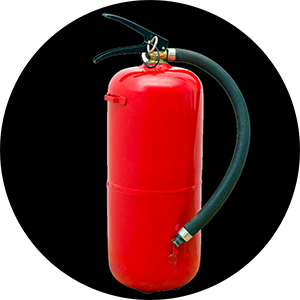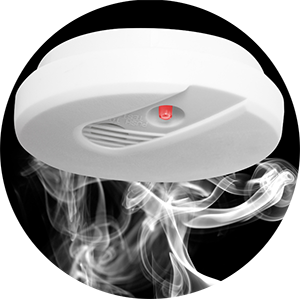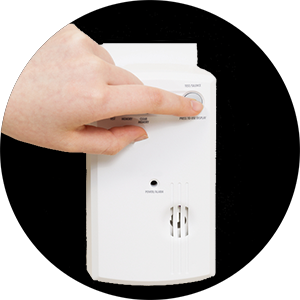Carbon Monoxide Detectors
What is Carbon Monoxide (CO)?
Carbon monoxide (CO) is an odorless, colorless gas produced by burning fossil fuels (these include natural gas, coal, kerosene, oil, propane and wood). Exposure to lower levels of CO over several hours can be just as dangerous as exposure to higher levels for a few minutes.
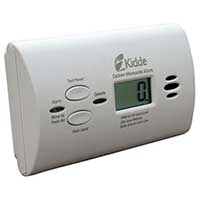
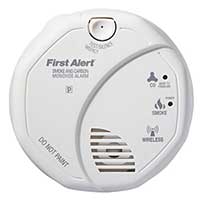
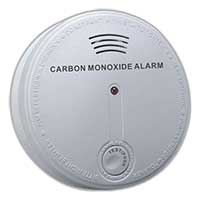
Who Needs a CO Detector?
Single Family Residences
A single family residence (heated by a forced air furnace or a boiler that burns a fossil fuel), should have a carbon monoxide detector within forty (40) feet of all rooms used for sleeping. The carbon monoxide detector should be placed to be easily heard in all sleeping areas and installed according to manufacturer’s instructions.
Multiple Family Dwellings and Apartment Buildings
A multiple family dwelling or apartment building (in which a hot water or steam boiler that burns a fossil fuel is located in the basement), must have one approved carbon monoxide detector installed in the room containing the central heating unit. The carbon monoxide detector should be installed according to manufacturer’s instructions. Every apartment that has its own warm air heating plant (portable furnaces, space heaters, etc.) that burns a fossil fuel, should have a carbon monoxide detector within forty (40) feet of all rooms used for sleeping. The carbon monoxide detector should be placed to be heard in all sleeping rooms and installed according to the manufacturer’s instructions.
Who is At Risk?
Those most at risk are:
- Children
- Elderly People
- People with lung or heart disease
- Pregnant Women
Signs and symptoms of CO poisoning include:
- Headache
- Fatigue
- Sleepiness
- Weakness
- Nausea, Vomiting
- Dizziness, Confusion
- Trouble breathing
If prolonged exposure continues, LOSS OF CONSCIOUSNESS, COMA and ultimately DEATH can occur.
Do you have any of these fuel-burning appliances?
- Gas Furnace
- Gas Water Heater
- Fireplace
- Wood Burning Stove
- Gas Ranges or Ovens
- Gas Dryers
- Kerosene Heaters
- Charcoal/Gas Grills
- Lawn Mowers
- Snow Blowers
- Chain Saws
Dangerous levels of carbon monoxide can occur if these appliances are improperly installed/maintained, damaged, malfunctioning or improperly used/ventilated. Furnaces, water heaters, wood stoves and chimneys should be checked yearly by a professional service. This ensures proper function and ventilation. Yard equipment (i.e. lawn mowers, snow blowers, etc.) or charcoal/gas grills should never be used or run in the home.
What to do if your CO detector goes off:
- Get out!
- As you leave, turn off fuel burning appliances if possible
- Get fresh air
- Call 911
- Seek medical attention if you have signs & symptoms of CO poisoning
- Don’t go back into the building until cleared by the fire department


